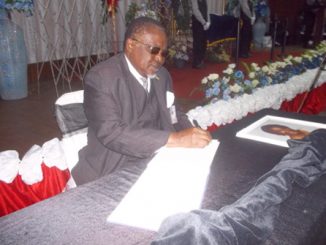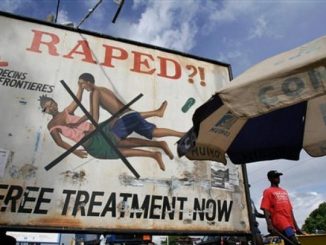
A Commentary By Amin Kef (Ranger)_*
News that Sierra Leone signed a Memorandum of Understanding with China Road and Bridge Corporation and Atepa Group’s architectural firm to build an eight kilometer (5 miles) bridge linking Freetown to Lungi with an estimated cost of $1.5 billion elated many Sierra Leoneans, but made others apprehensive.
Though the bridge will link the capital Freetown to the town of Lungi, which is an airport hub, according to the statement, one school of thought believes it will be beneficial although there is another school of thought holds the view that it could be a burden on this generation and other generations to come.
A feasibility study for the project is expected to be completed in the next few months and construction to begin in the last quarter of 2024, after which it is estimated to take about three years to build.
The project is part of His Excellency, President Julius Maada Bio’s Big 5 Vision to improve Sierra Leone’s Technology and Infrastructure; link the capital with the important Lungi airport hub, and ease the transport flow of international and local travelers.
The bridge is to become a pathway for sustained economic growth and is to complement the new airport commissioned on March 3, 2023 by President Maada Bio. The ultra-modern airport, which cost $270 million, replaced the old airport built in 1945.
The Chinese company, China Road and Bridge Corporation, is among the largest engineering and construction firms globally and operates in more than 50 countries across Asia, Africa, Europe, and the Americas. It is a member of the Fortune 500, ranking 61st.
The Atépa Group, including the architectural firm, has several globally renowned projects to its credit, including the Banjul Airport (Gambia), the headquarters of BCEAO in Dakar (Senegal), the ECOWAS Fund headquarters in Lomé (Togo), and the Monument of the Renaissance, also in Dakar. It has offices in several countries in Africa and Asia.
That beside, some are asking themselves whether as a country we need such an ostentatious project at a time when the country is still grappling with unsolved woes and problems.
It must be noted that we are still considered as an underdeveloped nation, struggling to be heard and seen among other African countries which were far below in terms of economic prosperity but have today climbed far higher than Sierra Leone.
However, there are people who believe that the Freetown-Lungi Bridge will bring prosperity and economic development and therefore, President Bio in his vision did the right thing.
But in all of this, there are many issues related to this project that need to be clarified by Parliamentary representatives. That said, bridge no bridge, the interest and development of Sierra Leone comes first!
———————————————————-
LAWYER BASITA MICHAEL COMMENTS
Sierra Leone this week announced a landmark agreement with China for the construction of an 8-kilometer bridge connecting Freetown to the Lungi Airport, a project said to be estimated to cost $1.5 billion. While the prospect of improved connectivity between Freetown and Lungi is welcomed, the lack of transparency surrounding the agreement raises critical questions.
One of the primary concerns is the absence of specific details regarding the Memorandum of Understanding (MOU) between Sierra Leone and China. The government must make this document public, shedding light on the terms and conditions of the agreement.
Is the MOU simply for a feasibility study, technical design and costs as the Chief Minister Sengeh suggested in his tweet on 12/1 or full project as the public notice from the Ministry of Information suggests?
Questions linger about the funding – is it a loan, a grant, or a Build-Operate-Transfer (BOT) arrangement? If it’s a BOT, what are the repayment arrangements, and for how long has Sierra Leone committed to this partnership?
Furthermore, the government should commit to publishing a detailed breakdown of project costs, encompassing construction, financing, and maintenance. An independent oversight body should be established to monitor the project’s progress, ensuring funds are utilized efficiently, and regular public reports should be issued to maintain transparency and build public trust.
The strategic decision to lease the airport to Turkish interests and the bridge to Chinese entities warrants scrutiny from a national security perspective. How does this align with Sierra Leone’s broader security interests?
Concerns about the environmental impact of the bridge construction are paramount. What assessments have been conducted, and what steps will be taken to minimize the project’s environmental footprint?
The Sierra Leone River estuary’s ecosystem must be safeguarded, and clear plans for managing and disposing of construction waste responsibly are imperative. A comprehensive plan to mitigate negative social and environmental impacts is essential for responsible development.
The labour standards applied to the project are of utmost importance. The government should clarify how it intends to protect workers’ rights, prioritize local employment opportunities, and prevent labour exploitation. Ensuring fair wages and safe working conditions is a non-negotiable aspect of responsible infrastructure development.
As Sierra Leone embarks on this significant infrastructure project, the government must address these pressing questions and concerns. Transparency, accountability, and sustainability should be the guiding principles, ensuring that the Freetown-Lungi airport bridge becomes a symbol of progress and prosperity for all Sierra Leoneans. The citizens deserve not just a physical bridge but a bridge to a future built on trust, responsible governance, and shared economic benefits.



